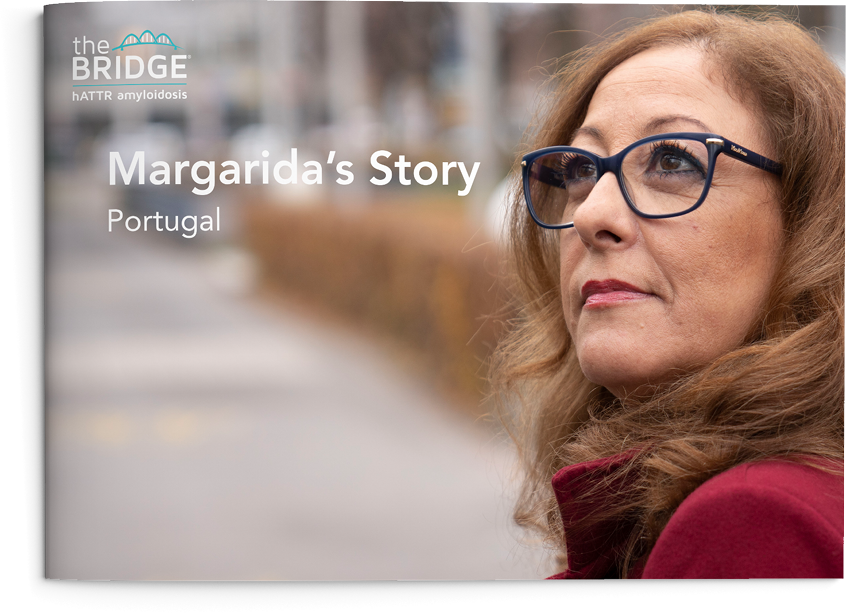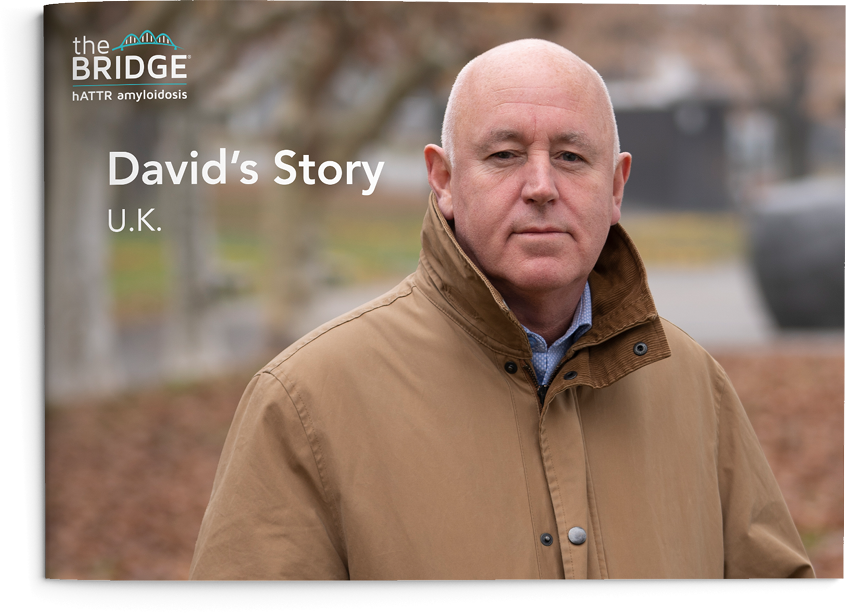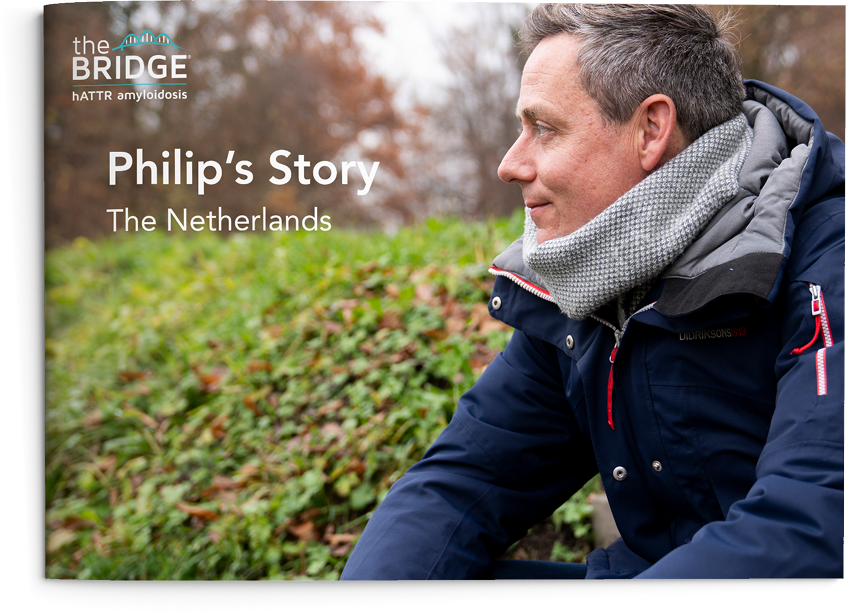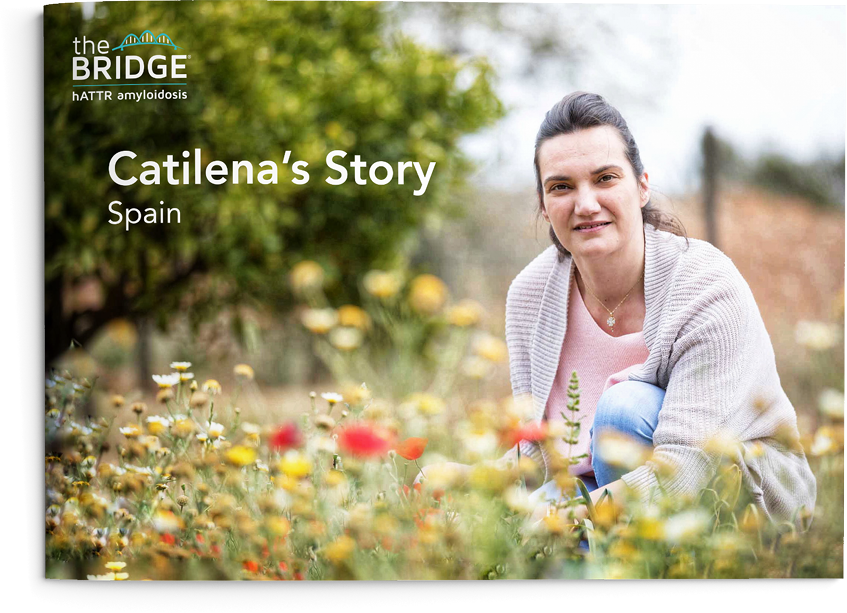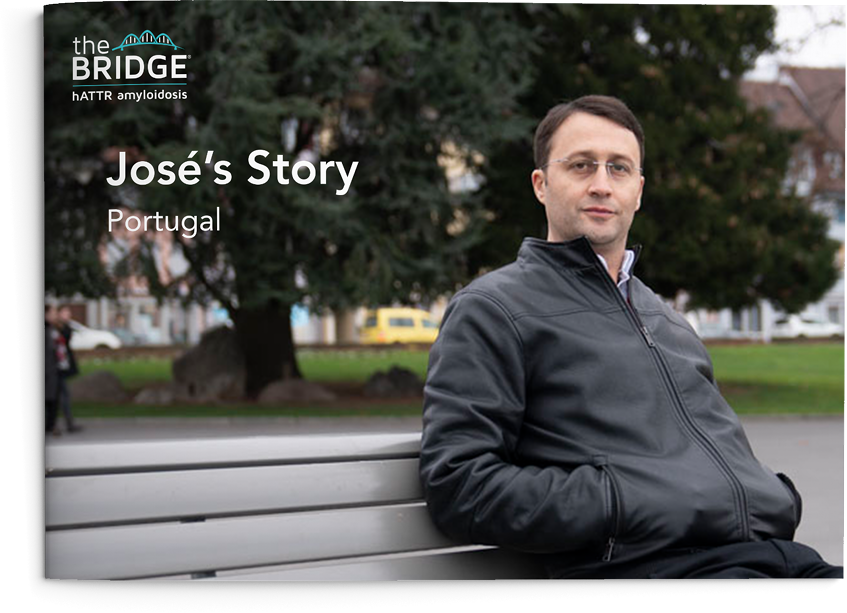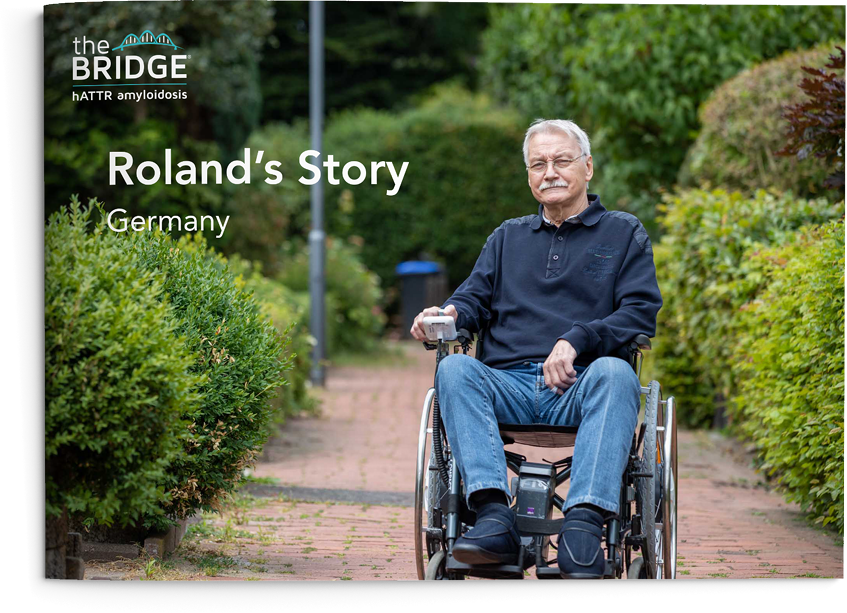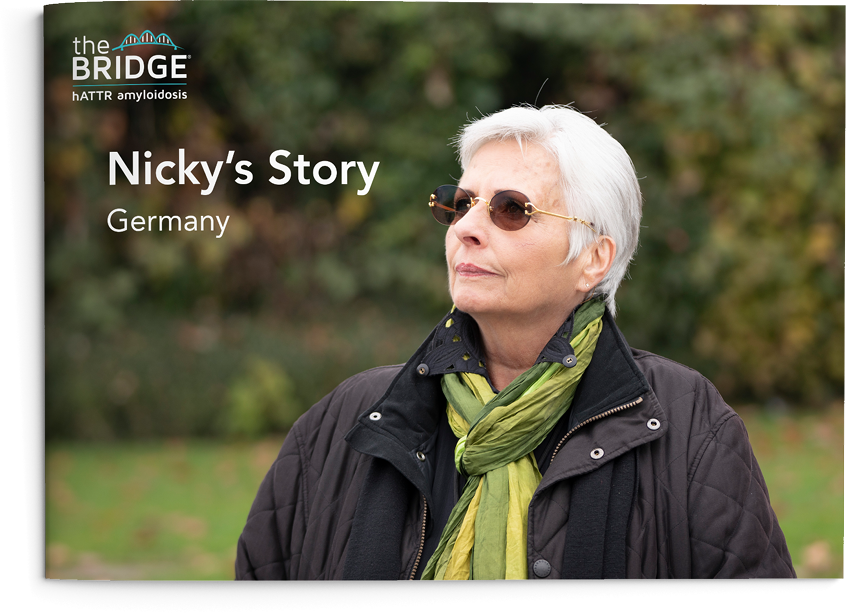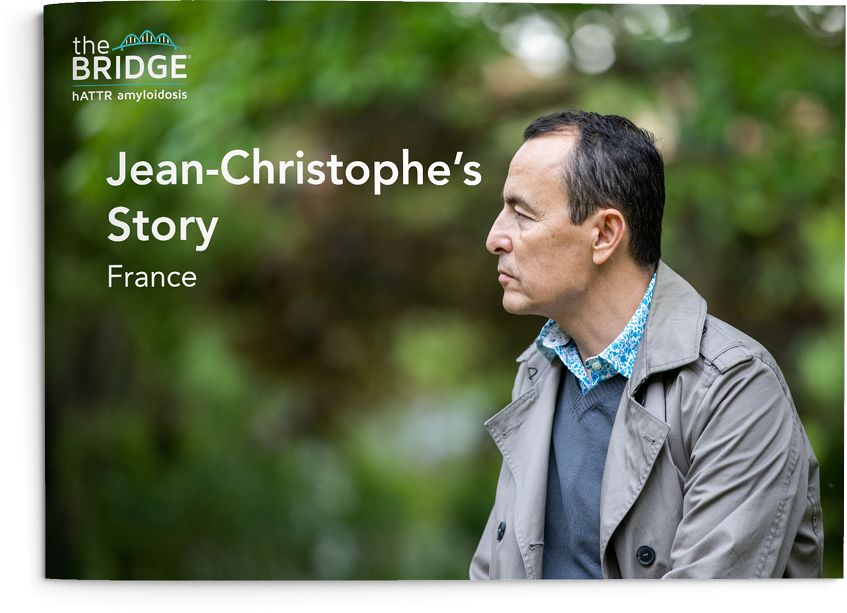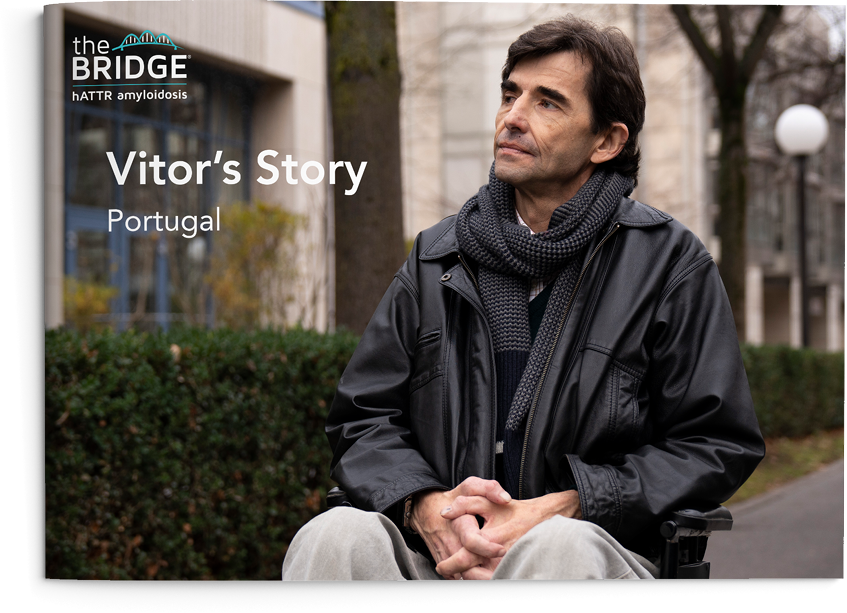Patient Stories
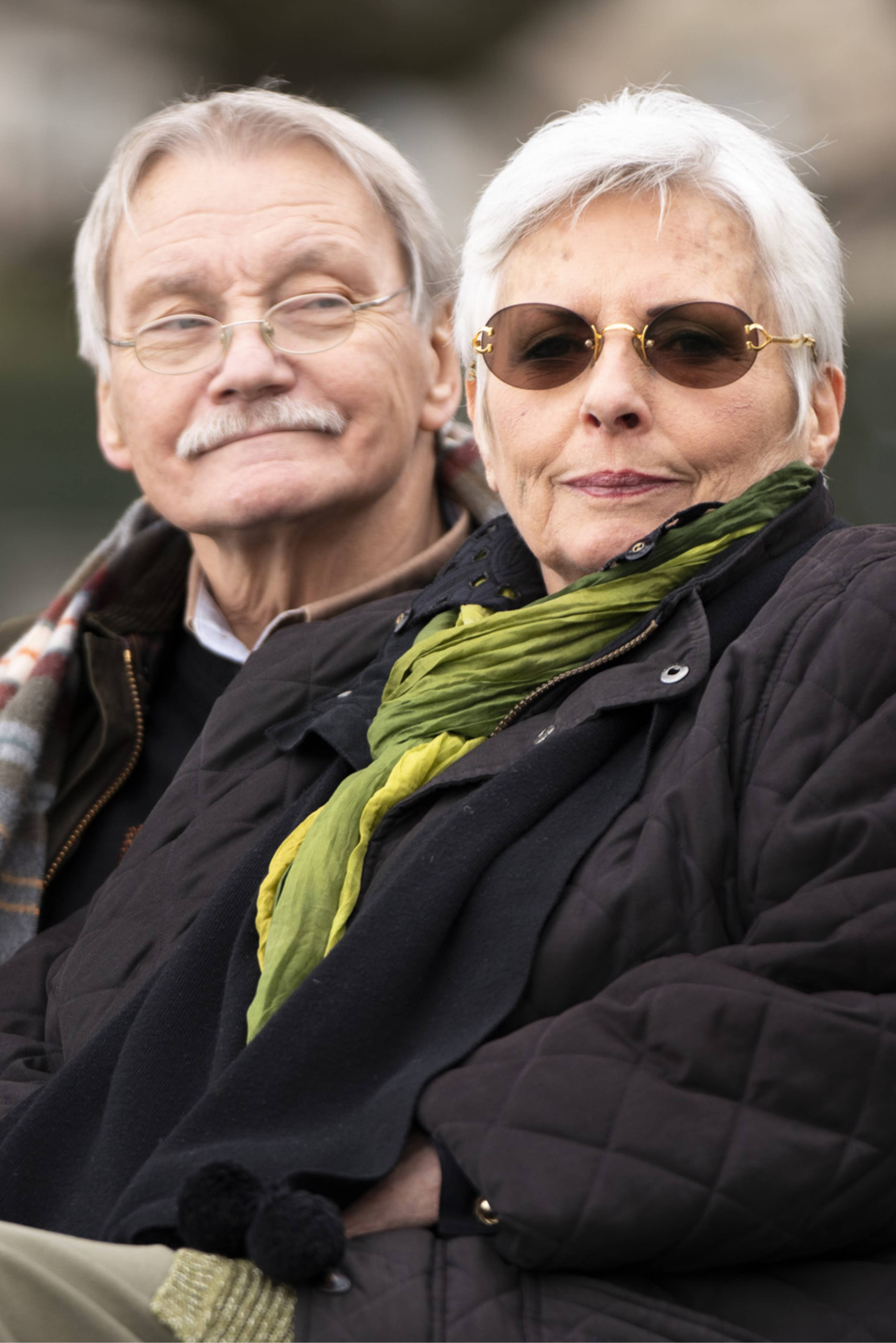
Life is filled with risk. As a croupier I watched countless people put their security on the line with the hope of beating the odds. One time, I myself got a royal flush, which is a very rare hand to be dealt. Had I not been an employee, I would have been able to retire right then and there. Just my luck to have such luck when I couldn’t enjoy it. But I was able to keep the cards and they are now framed and in my house as a reminder.
Love is a risk, too. And, finding true love is rare indeed. Little could I have predicted that my career would eventually bring me the best luck of all. That being a croupier on a cruise ship was the start of a partnership that has lasted 27 years and is still going strong. I didn’t know it then as I had not met Roland quite yet, but my own life was about to change. It was about to become entwined with his in ways that I could never have imagined.
Hi, I am Nicky, and I would like to thank Alnylam Pharmaceuticals for sponsoring and supporting me to share my story of living with my husband, Roland, who has hATTR amyloidosis.
Roland is German; I am English. We met when we were both employed on a cruise ship. He was a chef in the kitchen; I was a croupier in the casino. A group of us would get together in the employee lounge at the end of the day for conversation and laughs. As we sailed the warm and sunny Caribbean, my friendship with Roland grew into a wonderful, loving relationship. Our personalities met somewhere in the middle, and I am sure it had a lot to do with our shared sense of humour and love of adventure. He is very patient, and I am almost always in a hurry. He is very mischievous, and I have to keep my eye on him all the time. Anyway, somehow, we just meshed in every way, and still do, all these years later. Once we were married, we combined our personalities and talents and worked for many famous and wealthy people on- and off-shore. We lived an interesting and exciting life during those years. Sure, we worked hard, but we always had fun.
Then in 2011 a great sadness started creeping into our life together. It began with tingling and loss of feeling in Roland’s hands and feet. Little did we realize what was yet to come. After some tests, the doctors diagnosed polyneuropathy, but there was no obvious cause. Things just got worse from there. He began to have difficulty doing the most basic tasks like taking a shower, getting dressed, and driving. Cooking and baking were also a problem—bigger than most for a chef. I was willing and able to help him with everything, but my very independent and dynamic man realised he had to rely on me. I had become a carer more than a wife. This made him frustrated and unhappy. He was beginning to feel like a different person. I tried to keep him positive and give him the strength to be able to cope, but it was very hard on us both.
I must admit that what he was going through began to take its toll on me, too. I was exhausted, and so very sad inside. I did not allow Roland to see my daily tears. I was determined to keep things positive. The stress of not being able to do anything to take away his pain was devastating and giving all my loving care and making him laugh didn’t seem to be enough. Nothing prepares one for such worries. I just pushed on and did my best.
He began to use a walking stick, which actually helped restore some of his confidence and energy. This relief did not last long. Six months later he was again in hospital for tests, which yielded nothing useful. Finally, when his GP noticed irregularities after a routine electrocardiogram (ECG), he went to see a specialist. It turned out that his heart muscles were very stiff, and he needed to have an immediate biopsy to find out why.
We were trying to be patient while waiting at home for the test result—and I have already admitted patience is not my strong point—when he collapsed on our sofa. He stopped breathing. I immediately called the emergency service. During what seemed like an interminably long wait for them, I thought that I had lost him. Thankfully, he came around, but he was not really himself. He had released urine and I had to clean him up. He was able to sit up, but as the emergency crew arrived, he promptly threw up all over the doctor’s shoes. We had just eaten green cabbage for lunch, so it was not a pretty sight. This frightening event changed everything, and while horrible, it started us on the path to understanding what was going on with Roland’s health. We needed answers and we got them soon enough.
Roland was sent to the hospital for observation and more tests. There, they did a foot biopsy to gather tissue samples to study for the amyloid deposits, or so it was explained later. He was sent back to the cardiologist, who sent him on to the electrophysiologist where, finally, all of his results were summarised for us. For the first time after three harrowing years we had a name: hATTR amyloidosis, a rare genetic disease. We were relieved, but there was so much for us yet to learn. The doctor sent him to the university hospital five hours away from our home where there was a specialised department for amyloidosis patients. There he had more tests and a general check-up. More waiting, but eventually the realities were further explained. We also began to do research on our own. Roland loves using his computer and together we read everything we could find.
Late that same year his heart stopped again in the night, which again resulted in the emergency service taking him to hospital. Even though we now understood what was going on, it did not seem to matter. The doctors had not heard of the disease. Despite our own awareness and communications with them, they diagnosed epilepsy and sent Roland home. I learned to sleep with one eye open, which was useful as he had three more episodes over the following months. In fact, one time he collapsed outside the ambulance station. A few days later he received a pacemaker. This gave us some peace for a while, even though the diagnosis of epilepsy was completely wrong.
Those early months were filled with desperation. In the first year he lost 20 kilos. My wonderful, robust man was slowly disappearing before my eyes. I was mortified every time he got on the scales. He was sick almost all the time. He continued to throw up or have diarrhoea, or both, and could not eat much. Eventually, his GP found two huge gallstones, which were removed. After this he gained some weight and for three months this sickness stopped completely. Unfortunately, it has recently returned but on a much smaller scale, thankfully.
This time in our life was turning out to be the worst experience we could ever have imagined. My emotions were bordering on despair. The more I tried to hide them, the worse I felt. I began to wonder how I was going to survive. I tried to remember what my parents always said about never being given more than you can handle. This is the hand we were dealt, and we were going to see it through. Roland needed me. He needed my strength, my laughter, and all the love I could give. I tried to take each day as it came. I tried to always believe it would get better. I convinced myself that it would get better and gave myself time to accept the situation. I was determined to be strong enough to see both of us through.
Our adventurous ways have been curtailed. Because of his illness it is so difficult to travel anywhere, so we stay mostly at home. Wherever we go, we must pack changes of clothes and disposable undergarments, and we need to know where all the toilets are located. There is no way he can manage these things on his own. He now uses a rolling walker so at least I know he can stand and walk safely. He loves his computer even more now, and we watch lots of TV together. We still laugh a lot. He is very active and goes for walks every day even though it’s at a snail’s pace. He is also the head of a charity, precisely because he is such a positive, outgoing person, and people really love him. I am outgoing and energetic, too, or I would never be able to keep up with him. I am so grateful that we can laugh most of the time, especially during the “bathroom incidents” as we call them.
It’s important to understand just how much of an impact hATTR amyloidosis has on family and friends, and on lifestyle. It’s not easy to take care of someone else while also trying to manage one’s own needs and health concerns. It’s not easy to be present and active with the grandchildren. It’s not easy to accept that life as you knew it will never be the same. Just when you think you cannot endure anything more, you find a way. This is love. This is life.
Remember I said at the start of this that love is a risk? Life is filled with risk, but the risks are worth taking. Roland and I never planned to meet each other. We never thought we would be married. Fate stepped in and decided that this was meant to be, both the good and the bad. I am so unbelievably lucky. Were it not for my luck and fate, I might have missed out on being with the most beautiful man I could ever have imagined—this is the best hand of all!
Thank you!
